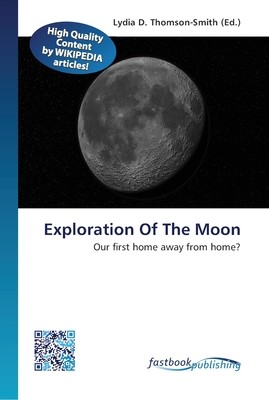
- We will send in 10–14 business days.
- Publisher: FastBook Publishing
- ISBN-10: 6130195230
- ISBN-13: 9786130195236
- Format: 15.2 x 22.9 x 1.5 cm, minkšti viršeliai
- Language: English
- SAVE -10% with code: EXTRA
Exploration Of The Moon (e-book) (used book) | bookbook.eu
Reviews
Description
Please note that the content of this book primarily consists of articles available from Wikipedia or other free sources online. The Moon, the only natural satellite of our planet, has been observed and studied with curiosity for millenia. The invention of the optical telescope brought about the first leap in the quality of lunar research - Galileo Galilei observed mountains and craters on the Moon's surface with his telescope in 1609. The physical exploration of the Moon began when Luna 2, a space probe launched by the Soviet Union, made an impact on the lunar surface on September 14, 1959. However, the greatest achievement in lunar and indeed space exploration was NASA's Project Apollo, which succeeded in landing the first humans on the Moon in 1969. Learn more about the history and future of lunar exploration, in this book.
EXTRA 10 % discount with code: EXTRA
The promotion ends in 23d.12:44:23
The discount code is valid when purchasing from 10 €. Discounts do not stack.
- Publisher: FastBook Publishing
- ISBN-10: 6130195230
- ISBN-13: 9786130195236
- Format: 15.2 x 22.9 x 1.5 cm, minkšti viršeliai
- Language: English English
Please note that the content of this book primarily consists of articles available from Wikipedia or other free sources online. The Moon, the only natural satellite of our planet, has been observed and studied with curiosity for millenia. The invention of the optical telescope brought about the first leap in the quality of lunar research - Galileo Galilei observed mountains and craters on the Moon's surface with his telescope in 1609. The physical exploration of the Moon began when Luna 2, a space probe launched by the Soviet Union, made an impact on the lunar surface on September 14, 1959. However, the greatest achievement in lunar and indeed space exploration was NASA's Project Apollo, which succeeded in landing the first humans on the Moon in 1969. Learn more about the history and future of lunar exploration, in this book.


Reviews